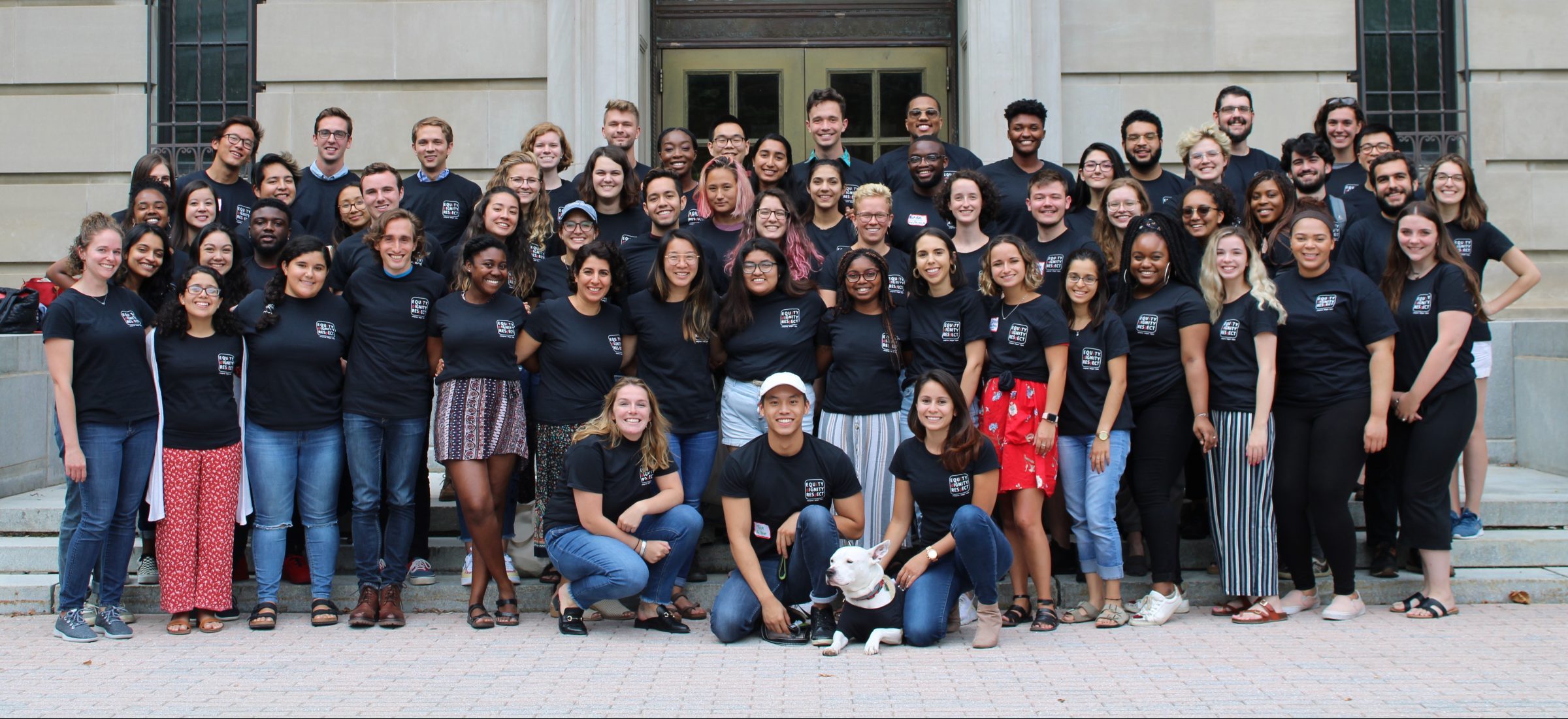“
One important thing I learned was the aspect that all incoming freshmen are going to be primed with this information when I am first meeting them. This will make it easier to open up, and listen to new people.
“
I plan to use LARA at orientation and all the events to expand my social environment and meet people of all backgrounds. I will welcome discomfort and vulnerability to meet and connect with new people I may not have expected to relate to.
“
I've learned that while everyone comes from a different background, you can still connect with others and learn from them despite your differences. You might even learn that you are able to understand each other and are more similar than you originally thought.
“
I learned that Cornell gathers students from all sorts of backgrounds and identities so it would be a good place for me to teach and learn with my peers in order to broaden my perspectives.
“
I definitely hope to take space for myself and make space for others as I meet new people in classes, clubs, and other places.
“
I learned that being uncomfortable in a conversation is not necessarily a bad thing, and you can actually learn from discomfort.
“
[I learned to] disagree with the statements, not the person - give recognition to people’s opinions, even if you disagree.
“
[I learned] that i'm not alone in my fears for this upcoming year and that there's tons of people who feel the exact same way. it really helped me believe i belong here.
“
I realized that we all have similar worries and fears about taking this new step in our lives. I feel like this makes it easier to reach out, knowing that my anxieties aren't so strange, and also being aware that the people around me will be able to listen and talk to me about them in a respectful manner.
“
I learned that all of us are in this together. When sharing our hopes and concerns, a common thread was that a lot of us were scared of starting over in a new environment, and just knowing that there are other people who are feeling the way I was was reassuring.
“
I learned that Cornell’s diversity is truly its strength. I met so many people from various backgrounds, but also learned that we shared so much - like our shared anxieties about starting college and our passion for learning.
“
[I] Learned about how everyone's hopes and fears were really similar. This was really validating and made me feel like though we were from such different backgrounds we had a lot in common
“
I plan to intentionally place myself in environments where I differ from others so it is more of a challenge to affirm. Affirming can very quickly default to "I relate" so I think I will make more meaningful, intentional, and interesting connections with those I don't easily just relate to.
“
One crucial thing I learned from this session is how much LARA can facilitate student connection and foster friendships easily. Whenever I find myself in a new, unfamiliar environment, I tend to have difficulties with breaking the ice and establishing meaningful discussions. With LARA, I found it significantly easier to talk with the other members of my group as well as feel like I was contributing enough to the conversation. I felt heard, respected and welcomed
“
I think that these skills are very valuable. One thing I realized over the course of this session was that it is important to take advantage of diverse settings. My high school was pretty diverse, but I felt that everyone, including myself, stuck to a certain group of people. In college, using LARA, I hope to expand my social skills.
“
I learned about LARA and how helpful it can be when talking with someone, especially when the conversation is about something you disagree on. It makes it easier to acknowledge and respect them while also allowing everyone to get their points across and understood.

